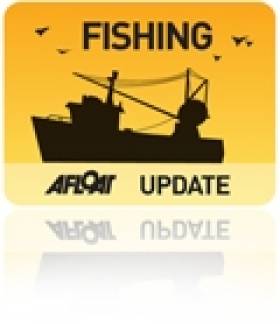Displaying items by tag: Irish Seafood Processing companies
Seafood Companies Get €1.75m Boost
Sean Connick TD, Minister of State at the Department of Agriculture, Fisheries and Food today announced €1.13 million in grant-aid for Irish Seafood Processing companies under the Seafood Processing Business Development Scheme, and a further €623,620 for aquaculture companies under the Commercial Aquaculture Development Scheme. This represents a total investment of €1.75 million in 15 seafood processing and aquaculture projects. Both schemes form part of the Seafood National Programme 2007-2013, funded under the National Development Plan 2007-2013. Development of both of these areas, seafood processing and aquaculture, are key elements in the recently published 2020 Food Harvest Report.
The Seafood Processing Business Development Scheme is aimed at SME’s who have solid business plans focused on adding value to Irish seafood products on both domestic and overseas markets. The qualifying projects all exemplify dynamic ideas in new product development and innovation. Grant-assistance of up to 25% on capital expenditure required for the production of value added products and for improvements in processes and quality beyond legislative requirements is being provided.
The Commercial Aquaculture Development Scheme is aimed at assisting fish and shellfish farmers to invest in their businesses. The approved projects are examples of companies that are looking to improve their efficiency through technology transfer and have a strong focus on quality, matched with the demands of the market. The measure provides for grant aid of up to 40% of eligible capital expenditure.
|
Company Name |
Eligible Expenditure € |
Grant Approved € |
|
Seafood Processing Business Investment Scheme 2010
Chillchiaran Eisc Teo. |
46,860 |
11,715 |
|
Connemara Seafood Frozen Ltd. |
184,000 |
46,000 |
|
De Brun Iasc Teo. |
16,500 |
4,125 |
|
Earagail Eisc Teo. |
517,000 |
129,250 |
|
Fastnet Mussels Ltd. |
225,000 |
56,250 |
|
Keohane Seafood Ltd. |
181,000 |
45,250 |
|
O Cathain Iasc Teo. |
294,000 |
73,500 |
|
Sean Ward(Fish Exports) Ltd. |
1,923,000 |
480,750 |
|
Sofrimar Ltd. |
1,133,000 |
283,250 |
|
|
|
|
|
Total |
4,520,360 |
1,130,090 |
|
|
|
|
|
Commercial Aquaculture Development Scheme |
|
|
|
Sliogéisc na Rossan Teo. |
299,400 |
119,760 |
|
Feirm Mara Oilean Acla Teo |
280,000 |
112,000 |
|
IDAS Limited |
73,630 |
29,452 |
|
Goatsbridge Trout Farm Limited |
637,000 |
254,800 |
|
Fastnet Mussels Limited |
29,500 |
11,800 |
|
Curraun Blue Limited |
239,520 |
95,808 |
|
|
|
|
|
Total |
1,559,050 |
623,620 |






























































